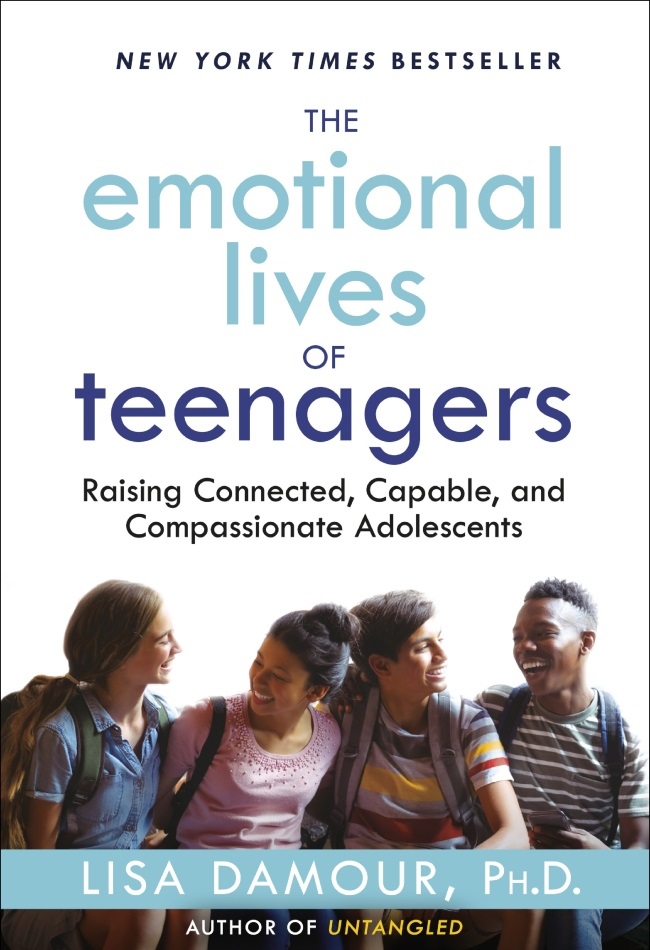
It’s pretty much a rite of passage for parents. Almost overnight your child who used to enjoy cuddles and spending time with you becomes aloof, if not downright prickly.
Don’t take it personally, says psychologist and author Lisa Damour – it’s just what teenagers do as they become increasingly independent. As a psychologist who works with teens and as the mother of teenagers herself, she knows just how challenging the adolescent years can be.
That’s why she wrote her latest book, The Emotional Lives of Teenagers. It’s a guide to help parents understand their teens’ intense and often fraught emotional lives, with advice on how to support them through this critical developmental stage.
This extract focuses on what it means to really listen and how to get your teen to open up.
REALLY LISTENING MATTERS
This may seem obvious, but listening can be surprisingly difficult to do. We hate to see our teens suffer, and reflexively try to ease their distress by offering solutions.
A teen says she doesn’t like the timing of the shifts she’s been assigned at work, and we tell her she should talk to her manager. A teen is angry that a class-mate swooped in and stole his prom date, and we list off other classmates he could ask.
There’s nothing wrong with these suggestions, but as you’ve likely learnt from personal experience, they usually don’t go over well. That’s because we’ve focused our attention on the wrong target.
Instead of trying to erase the problem that caused our teenager to become upset, we should see – at least at first – whether the act of putting feelings into words provides all the relief that’s needed. Simply talking about feelings reduces their intensity, so let your teen talk.
Before you jump in with reassurance, advice or a recollection of having had a similar experience yourself, see what happens if you just listen.
It’s easy to think we’re listening when we’re really not. We’re often waiting for our teen to finish talking so we can share a thought. That’s not listening, that’s turn-taking.
To really listen, imagine you’re a newspaper editor and your teen is one of your reporters, reading you a draft of an article about an aggravating teacher, or a classmate she’s worried about, or some other troubling news of the day. Here’s your task: as soon as your reporter gets to the end of the article, you have to craft its headline.
In other words, you need to distil a long and detailed story down to its compelling essence. This takes real effort, but it’s worth a try.
Though I often misstep in my own home, here’s an example of a time I got it right.
When the pandemic began, my older daughter was in secondary school. As the realities of lockdown set in, she launched into a justified rant about what school had become.
She railed about how they’d taken away everything fun – the clubs, the games, the getting to be with friends – but left intact the lectures and the cramming for tests. I listened like an editor, and when she was done, I said: “It sounds like school is now all vegetables and no dessert.”
She appreciated and accepted this and, at least for the time being, felt better. Putting her frustration into words and then hearing me use my words to encapsulate her experience was enough to bring her discomfort down to a tolerable level.
When we engage fully and refrain from pushing solutions, we wordlessly communicate three things. One, that we understand their emotional pain and are not alarmed by it. Two, that they don’t need to be afraid of it either. And three, that instead of batting away their problems by firing off suggestions, we offer something better – our attentive, steady presence.
READ MORE| Teenagers and booze, what you can do
HOW TO GET YOUR TEEN TO OPEN UP
Many parents raising teens who tend to keep their feelings to themselves spend a lot of time wishing they knew more about what their adolescent is thinking and feeling.
They often get conversations that go something like this:
“How was school?”
“Fine.”
“Anything interesting happen today?”
“Nope.”
It’s not always easy to get teens with closely held emotions to open up, but there are some strategies to up the odds of having a meaningful conversation.
Remember that teens, especially tight-lipped ones, really don’t like to be put on the spot. So your number one priority is to keep your teen out of the hot seat.
One way is to steer clear of direct questions. Instead of asking “How do you feel about your new coach?” take an indirect tack: “What are people saying about the coach who just came in? Do they like her?”
While our ultimate aim is to help teens find emotional relief by describing their own feelings, getting them to talk about what their peers are feeling might help get the ball rolling.
Another way is to save your questions for times when you and your teen are not face to face. Many parents find they have some of their most unguarded chats with their teen when they’re together on a drive or a walk. It can be a lot easier for teens to share their inner world when they don’t have to look at us.
Whenever I want to bring up a delicate topic with one of my daughters, I wait until we’re out driving, and then I wait until we’re about three minutes from arriving back home.
The combined effect of us both being eyes front and my daughter knowing the subject can’t possibly be entertained for long gives us a fighting chance for a meaningful, if brief, conversation that would otherwise be a non-starter.
One more way to make it easier for teens to express their emotions more freely is to reach out by text. I was first put on to this approach by a friend, the mother of two teen boys who both hold their cards close to their chests.
She shared with me that her deepest and most heartfelt conversations with her sons have inevitably occurred through text messages.
When one of her sons had ended the semester with uncharacteristically low grades in two of his subjects, my friend and her husband tried to talk with him about what had happened.
READ MORE| Are you making one of these 7 common parenting mistakes?
He kept telling them he didn’t know what to say, so they went to bed having given up on trying to have a conversation about it.
“After he went to school the next morning,” my friend told me, “I texted him to say that he wasn’t in trouble, but that we just wanted to make sense of his grades. He replied with the longest text I’ve ever gotten from anyone.”
In it, he said he felt ashamed about the grades, terrible about disappointing them and scared they were mad at him.
My friend and her son texted back and forth through the day and were able to unpack the issue in a way that would never have been possible in person.
“After all that, he texted me to say he really appreciated our support and that he loves us. I burst into tears when I read it.”
It’s easy to imagine that other parents are sitting around their kitchen table having long heart-to-hearts with their teens, but I suspect that’s pretty rare.
Addressing emotionally charged topics by text is a perfect way to get a touchy conversation going while keeping teens out of the hot seat.
They don’t have to look at us, they can take as long as they need to answer, and the written response may result in a far more precise accounting of how they feel than they’d ever communicate in person.
But I’d urge you to resist the temptation to try to pick up the conversational thread in person at the end of the day.
Switching from texting to talking might leave your teen regretting having opened up.
And if you text and get little or nothing back, don’t despair.
Teens, in my experience, do want to share what’s on their minds with their parents. But they usually want to engage on their terms, not ours.
*This is an edited extract from The Emotional Lives of Teenagers by Lisa Damour, © 2023. Reprinted here by permission of Allen & Unwin, an imprint of Atlantic books




 Publications
Publications
 Partners
Partners



















